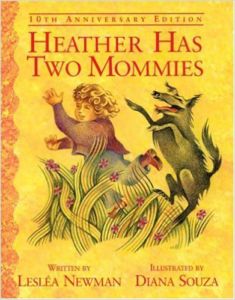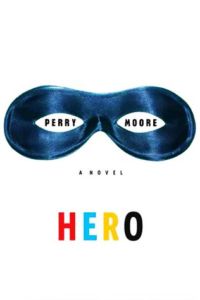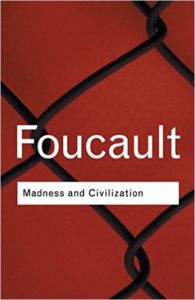On the effects of cultural discourses of addiction
If you’re not one of my Facebook friends, you may not know what’s going on in my non-film-critic professional life. I’m an anthropologist, remember? So: I finished my dissertation on the effects of cultural discourses of addiction on meth-using HIV-positive men who have sex with men San Diego, received my doctorate in anthropology from UCSD in June of 2013, immediately started a post-doctoral fellowship focused on HIV prevention research at UCLA, am now finishing that, and, with luck, will be gainfully employed by someone fabulous before July. But, chances are, my readers do know that. Or not. Hard to know.
However, even if you do know that stuff, you probably haven’t had the opportunity to read my fabulous dissertation or, as I do when I get a copy of a friend’s dissertation, check to see if you’re in my acknowledgement section. I was told that it was going to be the most fun to write, and it was, since every other section involved deep thoughts. The acknowledgments just required memory and synonyms for “thanks.” After three pages1, however, I ran out of time and space, and I left a lot of people, places, and things off the list. So, an addendum was in order, but I’ll just footnote that, too, because the main reason for this post to talk about where the research went2.
And since you haven’t read my dissertation — and I doubt more than four people have actually read the whole thing — you probably don’t know exactly what I was doing all that time I lived in San Diego. It’s fabulous, but I don’t suggest you read it. Since I finished the thing, I’ve done a great deal of work on large chunks of it, transforming three of the chapters into articles. Those have all been published now, and now I’m going to give you the 411 on them3.
“Survival Tactics and Strategies of Methamphetamine-Using HIV-Positive Men Who Have Sex with Men in San Diego,” PLOS ONE, September 30, 2005.
In this article, two ways that HIV-positive drug users survive under the supervision of law enforcement agencies, community health organizations, and social welfare offices are differentiated. First, strategies are long-ranging and often carefully planned, and they involve conscious utilization and manipulation of bureaucratic processes. Second, tactics are short-ranging and often haphazard, and they are used to survive on daily or weekly bases, with entrenched problems and structural solutions avoided or ignored. Data from three years of ethnographic fieldwork with 14 methamphetamine-using HIV-positive men who have sex with men in San Diego, California is used to expand upon these two categories, explaining the different, often ineffectual, ways these men accessed care, services, shelter, drugs, and companionship. This article also examines the policy implications of taking in consideration these different kinds of survival methods, arguing for intensive client-specific interventions when working with long-term addicts with multiple health problems.
“Pride, Shame, and the Trouble with Trying to Be Normal,” Ethos, December, 2015.
Methamphetamine use and HIV are large and intertwined problems in American gay communities. This is particularly so in San Diego, California, where both meth and HIV have been endemic for three decades. Because meth use is associated with not just the spread of HIV and other STDs, but also with petty and violent crime, the public health and law enforcement agencies have responded with substantial, but often ineffective efforts at turning meth addicts into “normal,” “productive members of society.” In this article, I examine the effects of these processes on the subjectivities of 14 meth-using HIV+ men who have sex with men (MSM) who were the focus of person centered ethnographies I performed from 2009 to 2011. All of the participants in my study wanted to be normal, and what constituted normalcy was an American – in both the last 20th century neoliberal and “homonormative” ways – ideal of self-reliance, employment, health, marriage, and home-ownership. This desire for normalcy was not just the product of living in the United States at a particular historical moment, but also it was also influenced greatly by the men’s experiences with recovery programs, the prison system, and healthcare providers, all of which were trying to shape them into particular kinds of subjects, specifically addicts, either active or in recovery. They were taught to narrativize their addiction as moral and medical stories, and their stories tended to end with dreams of a normal future, a future free from pain, frustration, and the gaze of the apparatus. But in their struggle to make that future happen, their emotional options were limited by the anti-meth apparatus: those who failed felt profound shame, those who succeeded expressed great pride in their abilities, and those who hovered in the middle I describe as having “risky subjectivity,” the perpetual constructing and reconstructing, the perpetual struggling to become something else.
“Framing Samuel See: The Moral Panic and “Double Epidemic” of Methamphetamines and HIV among Gay Men,” International Journal of Drug Policy, February, 2016.
After being arrested for violating a restraining order against his husband, on November 24, 2013, Yale professor Samuel See died while in lockup at the Union Avenue Detention Center in New Haven, Connecticut. The death received media attention around the world, with readers arguing online about whether See’s death was caused by police misconduct, as his friends and colleagues charged in interviews and during a well-publicised march and protest. When an autopsy revealed that he had died from a methamphetamine-induced heart attack, online commentary changed dramatically, with See’s many supporters rhetorically abandoning him and others describing him as a stereotype of the gay meth addict who deserved his fate. In this article, I argue that this shift in the interpretation and meaning of See’s death can be traced to the discursive structures left by the moral panic about crystal meth in the United States (1996–2008), which comprised within it a secondary moral panic about crystal meth in the gay community and its connection to the spread of HIV and a possible super-strain (2005–2008).
I’m currently revising a fourth piece for a collection of essays on syndemics.
My doctoral research led me to all sorts of places I never though I’d go. One of those places is the American corrections system, a bizarre and awful thing that is in desperate need of reform — and research. And my current work is with recently released HIV-positive MSM and transgender women who were incarcerated at the Los Angeles County Jail. But that’s another post.







